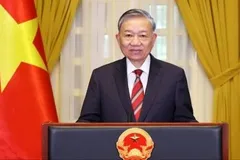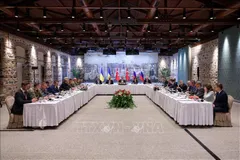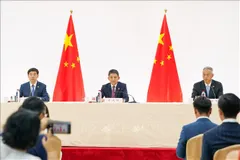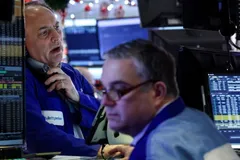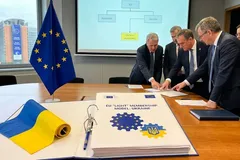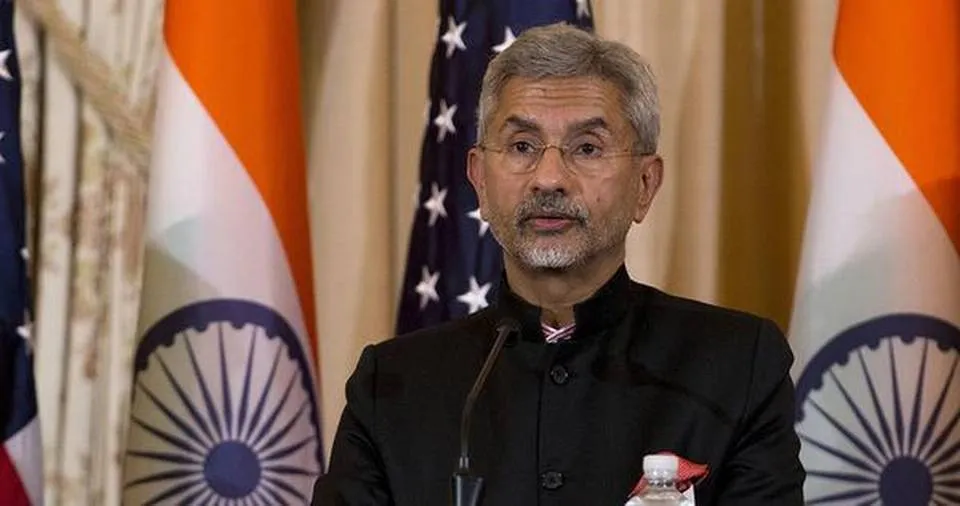
India has allowed other countries “unfair” trade and manufacturing advantages “in the name of openness”, asserted External Affairs Minister S. Jaishankar, in a speech criticising the effects of globalisation on Monday. Speaking just a day after the 15-nation Regional Comprehensive Economic Partnership (RCEP) was signed, Mr. Jaishankar was particularly scathing of trade agreements, which he said had forced India to “deindustrialise”.
“In the name of openness, we have allowed subsidised products and unfair production advantages from abroad to prevail. And all the while, this was justified by the mantra of an open and globalised economy,” Mr. Jaishankar said at the Deccan Dialogue conference supported by the Ministry of External Affairs.
Without directly referring to the RCEP, the world’s largest trading bloc that India decided to walk out of a year ago, Mr. Jaishankar said that the government had decided to move away from trading arrangements, towards an “Aatmanirbhar Bharat (self-dependent India)” policy where India could decide the rules and consolidate “comprehensive national power”.
“The effect of past trade agreements has been to deindustrialise some sectors. The consequences of future ones would lock us into global commitments, many of them not to our advantage. Those who argue stressing openness and efficiency do not present the full picture,” Mr. Jaishankar said, adding that India was not “turning its back on the world” but strengthening itself.
Mr. Jaishankar’s comments indicate that India is not considering at present, an offer from RCEP countries to rejoin the group at a later stage. In a separate statement, which Japan reportedly drafted, all RCEP countries committed to restarting talks with India, if and when it decides to reapply in writing.
Economists warn that staying out of RCEP could mean India misses a chance to set the rules in the important grouping at the beginning.
“India has been repeatedly missing the Asian bus, despite our desire to get on board,” said Sanjaya Baru, columnist and former director for geo-economics and strategy at the International Institute of Strategic Studies (IISS), likening the present to India’s decision to stay out of the Asia Pacific Economic Cooperation (APEC) forum in the 1990s. “RCEP was an important element and logical extension of our Act East Policy,” he added.
Leaders of the grouping hailed the RCEP agreement as a boost for multilateralism, even as Asian markets rose on Monday on news of the signing of the much-delayed deal.
“This is a major step forward for our region,” said Singapore Prime Minister Lee Hsien Loong. “At a time when multilateralism is losing ground, and global growth is slowing, the RCEP shows Asian countries’ support for open and connected supply chains, freer trade and closer interdependence,” he added.
On Sunday, 15 countries including 10 members of the Association of Southeast Asian Nations (ASEAN) and Australia, China, Japan, New Zealand, and South Korea signed the RCEP that was negotiated for eight years. According to the agreement, RCEP members will work towards abolishing about 92% of the tariffs on goods traded between them. The pact covers about 2.2 billion people with a combined GDP of $26.2 trillion, or a third of global population and GDP, and the previous Manmohan Singh government had originally joined the RCEP talks when they began in 2012.
After several rounds of talks, however, the Modi government decided to pull out of RCEP in November 2019, citing the group’s failure to address India’s concerns on “rules of origin”, over protections for India’s agriculture and dairy sectors, and worries about ceding more market access to China and other non-FTA partners. Tensions over the ongoing standoff with China at the Line of Actual Control, appear to have hardened New Delhi’s conviction about its decision last year.
In his speech on Monday, Mr. Jaishankar said that India had made its “choice” given the damaging consequences of previous free trade agreements, that had led to trade deficits, manufacturing cuts, job losses and to “becoming over-dependent on imports”.



